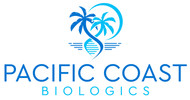FGF-acidic belongs to the extensive FGF family, comprising 23 known members. These proteins are vital in prenatal development, postnatal growth, and tissue regeneration by encouraging cellular proliferation and differentiation. FGF-acidic, specifically, is a non-glycosylated growth factor that binds to heparin, found in various tissues such as the brain, kidney, retina, smooth muscle cells, bone matrix, osteoblasts, astrocytes, and endothelial cells. It interacts with all FGF receptors, showcasing its broad signaling capabilities. The recombinant Human FGF-acidic is a 16.8 kDa protein made up of 141 amino acid residues.
|
Product Specifications
|
|
| Species | Human |
| Published species |
Bovine,Pig,Rat,Mouse,Human
|
| Expression System | E. coli |
| Amino acid sequence | MFNLPPGNYK KPKLLYCSNG GHFLRILPDG TVDGTRDRSD QHIQLQLSAE SVGEVYIKST ETGQYLAMDT DGLLYGSQTP NEECLFLERL EENHYNTYIS KKHAEKNWFV GLKKNGSCKR GPRTHYGQKA ILFLPLPVSS D |
| Molecular weight | 16.8 kDa |
| Class | Recombinant |
| Type | Protein |
| Purity |
≥ 98% by SDS-PAGE gel and HPLC analyses.
|
| Endotoxin concentration | <0.1 EU/µg |
| Activity | Determined by a cell proliferation assay using Balb/c 3T3 cells. The expected ED50 is ≤ 0.5 ng/ml in the presence of 10 µg/ml heparin, corresponding to a specific activity of ≥ 2 x 106 units/mg. |
| Conjugate | Unconjugated |
| Form | Lyophilized |
| Contains |
no preservative
|
| Storage conditions | -20°C |
CAUTION
For Research Use Only. Not for use in diagnostic procedures.













